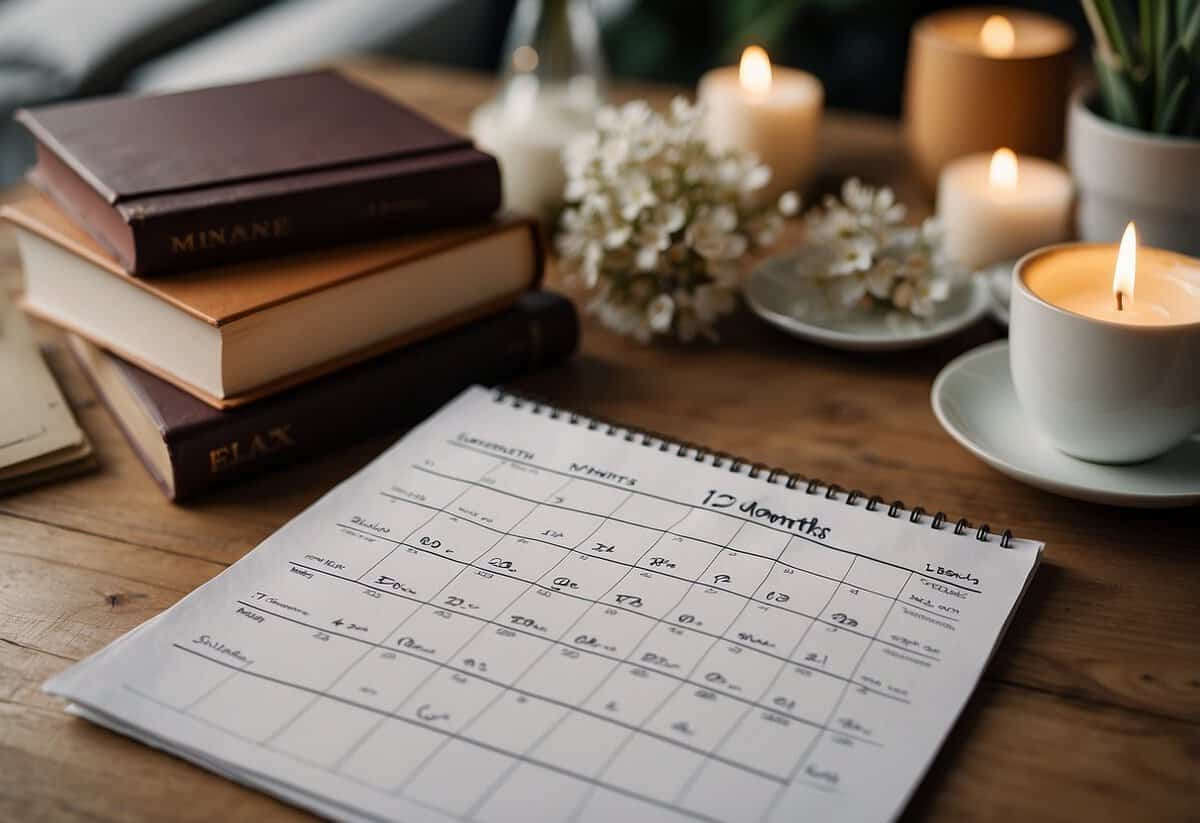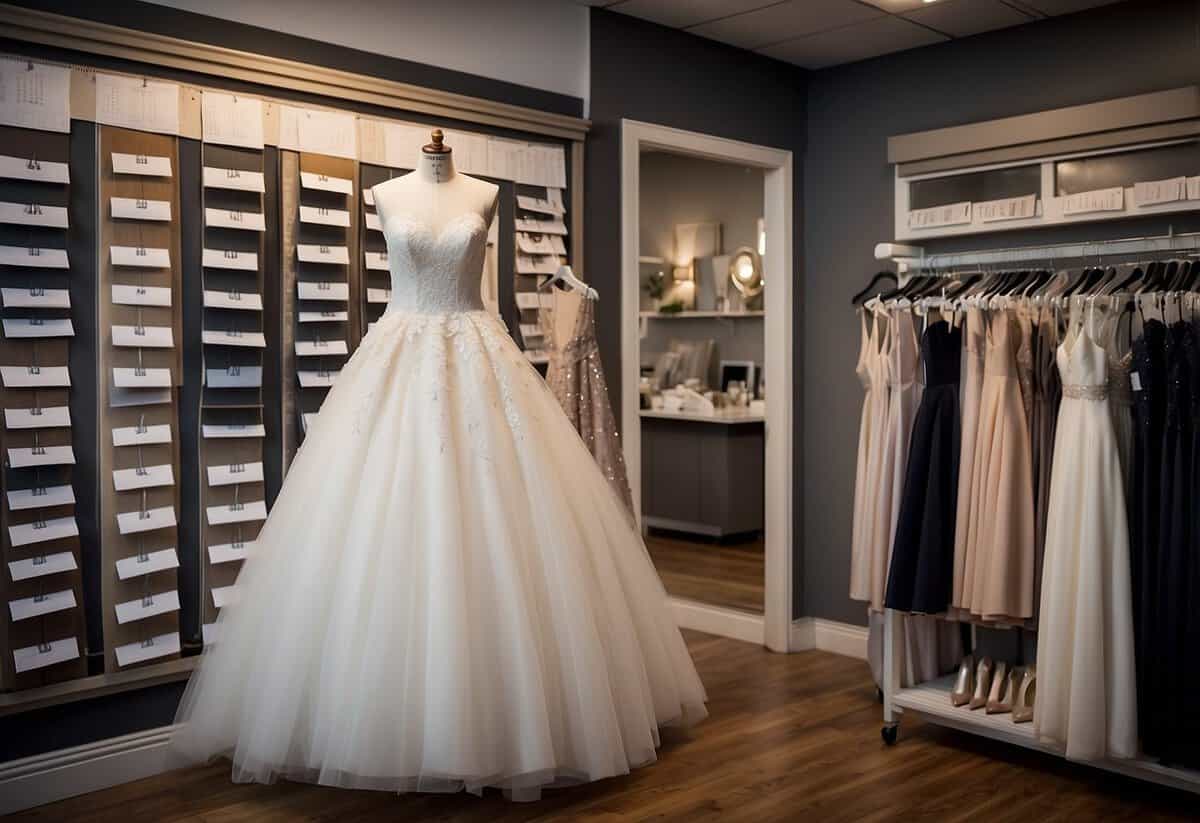How Many Months Before a Wedding Should You Start Planning? Tips for a Stress-Free Big Day
The journey from engagement to your wedding day is an exciting time filled with many decisions. One common question is: How many months before a wedding should you start planning? Most experts recommend starting your wedding planning process about 12 to 16 months in advance. This allows ample time to organize everything from the guest list to the wedding attire, ensuring your special day goes off without a hitch.

During your planning journey, creating a detailed wedding planning checklist can be a lifesaver. This helps you keep track of essential tasks like booking your venue, which should be done at least nine months before the wedding. Keeping organized will help make this exciting time more enjoyable and less stressful.
Another key step is to finalize your guest list early on, as this affects other decisions like the venue size and catering. Starting early allows you flexibility and ensures all your loved ones can join in your celebration. With proper planning, your wedding day will reflect the love and joy of your engagement.
Setting Your Wedding Vision and Budget

Before diving into planning, you need to define what your wedding will look like and how much you’re willing to spend.
Determining Your Wedding Style
Start by thinking about what you want your big day to feel like. Browse wedding magazines, websites, and social media for inspiration. Create a mood board with your favorite ideas, colors, and themes. Are you dreaming of a modern, classic, rustic, or beach wedding?
Make a list of must-have elements, like specific flowers, decorations, or a particular venue style. Think about the season and location as they will affect the overall vibe. Discuss your ideas with your partner to make sure you’re on the same page. This vision will guide many decisions during planning.
Creating a Wedding Budget
Creating a detailed budget is crucial. Begin by figuring out the total amount you can spend. Use tools like the WeddingWire Budget Tool to help you divide the budget into different categories. Consider costs like the venue, catering, attire, photography, and decorations.
Set aside a contingency fund for unexpected expenses. Prioritize spending on what matters most to you, whether it’s an extravagant venue or top-notch photography. Keep track of your spending and payments to ensure you stay within your budget. Regularly revisit your budget and adjust it as needed.
The Basics of Scheduling

Getting your wedding timeline right is crucial. You need to choose your ideal wedding date and understand how the length of your engagement can impact planning.
Choosing Your Ideal Wedding Date
Selecting the perfect wedding date is more than just picking a day. You need to consider things like the weather, venue availability, and holidays. Popular months for weddings are May through October, so booking in these months should be done well in advance. Think about whether you want a summer or winter wedding and how that will influence your planning.
Start by making a list of dates that are special to you, like anniversaries. See if these dates align with your and your partner’s schedules. Discuss these with close family to avoid any conflicts. Then, start contacting venues to check their availability on those dates. By doing so, you can ensure you have more options to choose from and avoid last-minute rush.
Knowing the Engagement Length
The length of your engagement can greatly affect your planning timeline. For example, if you are planning a wedding in less than six months, prioritizing your tasks becomes essential. This includes booking your venue, arranging catering, and sending out invitations promptly.
With a longer engagement, around 12 to 18 months, you have the luxury of time. This allows for more detailed planning, like scheduling vendor tours and fitting multiple dress appointments. It also gives you a buffer to handle unforeseen challenges without feeling rushed. A longer engagement can help you secure the best vendors and ensure every detail is perfectly planned out.
Being aware of these factors can make your wedding day both enjoyable and memorable.
Vendors and Venues

Planning your wedding involves crucial decisions, particularly when it comes to selecting your venue and main vendors. Booking these in advance helps ensure your big day runs smoothly and matches your vision.
Finding the Perfect Wedding Venue
Start looking for your wedding venue as soon as you get engaged. Popular venues can be booked over a year in advance, so the earlier you start, the better. Visit multiple venues to get a feel of what each has to offer, and always ask about availability, pricing, and what’s included in the venue package.
Consider the size and style of the venue to ensure it fits your guest list and wedding theme. Many venues offer on-site catering services, which can simplify your vendor list. It’s also crucial to read reviews and possibly talk to couples who got married there to gauge their experience. Use a vendor marketplace like Zola to find venues that suit your style and budget.
Selecting Your Main Wedding Vendors
Your main wedding vendors include the photographer, caterer, florist, DJ, and videographer. Start booking these around 9 to 12 months before your wedding.
Photographers and videographers should be able to capture your theme and style, so review their portfolios carefully. Book your caterer early, especially if your venue doesn’t offer in-house catering. For florists, discuss your ideas and preferences to ensure they can design the arrangements you envision. Booking entertainment like DJs or bands early guarantees availability and a chance to discuss playlists and preferences.
Research and compare services on a vendor marketplace like The Knot to ensure you select the best fit for your needs. Meeting with each vendor a few times before finalizing can help avoid misunderstandings and ensure everything goes as planned on your special day.
Guests and Invitations

Choosing who to invite and when to send invitations is key for a smooth wedding day. Careful planning will ensure your guests have all the information they need well in advance.
Creating Your Guest List
Start by deciding on the total guest count. Think about the size of your venue and your budget. Make a list of essential people you want at your wedding, such as close family and friends.
Use a spreadsheet or a wedding planning app to keep track of names and addresses. This helps you stay organized and makes sending invitations easier later on.
Don’t forget about plus-ones and children. Clarify on your invites if guests can bring someone or if the event is adults-only. This saves confusion and helps you track the exact number of attendees.
Lastly, send out save-the-dates about six months before the wedding to ensure your guests mark their calendars.
Designing and Sending Invitations
Your wedding invitations set the tone for your big day. Choose a design that matches your wedding theme. Order a sample to make sure you’re happy with the look and feel.
Send the actual wedding invitations about six to eight weeks before your wedding day. This gives your guests enough time to RSVP and make any necessary arrangements.
Include important details like the date, time, and venue. Also, add info on accommodations and a map if necessary.
Many couples also opt to include a link to their wedding website for guests to find more information. Be sure to follow up on RSVPs if you don’t hear back by the requested date.
After the wedding, remember to send thank-you cards to your guests. It’s a nice way to show appreciation for their attendance and gifts.
Attire and Aesthetics

When planning for your wedding, choosing your wedding attire and arranging the decor and flowers are essential for creating your desired look and feel. It’s crucial to start these tasks early to ensure everything is perfect on your big day.
Selecting Your Wedding Attire
You should start looking for your wedding dress about nine to twelve months before your wedding. This gives you plenty of time to find the perfect dress and make any necessary alterations. Shops usually need several months to order the dress and for fittings.
Set your budget before you begin shopping. You don’t want to fall in love with a dress that is out of your price range. Also, consider the attire for the entire bridal party. This includes bridesmaids’ dresses, groomsmen’s suits, and any other outfit you’ll need.
Schedule appointments with hair and makeup artists early. Decide on your hairstyle and makeup look in advance and have a trial run to ensure you love it. This helps avoid any last-minute surprises on your wedding day.
Deciding on Decor and Floral Arrangements
Decor and floral arrangements significantly impact your wedding’s look. Six to nine months before the wedding, start working with your wedding planner or decor specialist. Identify your wedding theme and color palette. This will guide your choices for everything from table settings to ceremonial backdrops.
Choose a florist during this timeframe as well. Meet with potential florists to discuss your vision. Decide on the types of flowers you want for the bouquets, centerpieces, and other floral decorations. Consider seasonal blooms to keep within budget and ensure freshness.
Think about other decorations like lighting, seating arrangements, and any additional embellishments you want. Plan these details well in advance to ensure everything fits together seamlessly and creates the atmosphere you desire.


